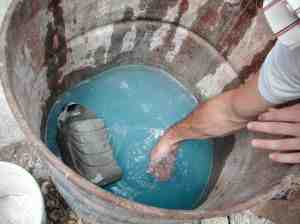 Advice On Typhoid For Travellers
Advice On Typhoid For Travellers
by Patricia Montgomery, LincsMag Writer.
Date: 01 September 2010

Experts at the Health Protection Agency (HPA) have produced a leaflet urging travellers to the Indian subcontinent to make sure they are vaccinated against typhoid.
Typhoid occurs worldwide, but most cases in the UK are in travellers returning from Pakistan, Bangladesh or India with approximately 500 cases reported each year.
Typhoid, sometimes known as enteric fever, is a disease caused by salmonella bacteria. Typhoid fever is a serious illness that can be treated with antibiotics but if left untreated can be life-threatening. The main symptoms include a sustained fever, headache, stomach pains, loss of appetite and nausea.
Typhoid Can Be Prevented
Typhoid can be prevented with a highly effective vaccine that provides protection for three years. A booster dose is recommended every three years for people who regularly travel to the Indian subcontinent where typhoid is a problem.
Dr. Vanessa MacGregor, a Consultant in Communicable Disease at HPA East Midlands, said: "In the UK, most people who have caught typhoid and paratyphoid fever are of Pakistani, Bangladeshi or Indian descent and have recently travelled to the Indian subcontinent to visit friends and relatives.
"Typhoid fever is a preventable disease, yet we are still seeing a high number of cases. If left untreated, typhoid can cause serious illness, or even death. This is why we're urging people to make sure they are immunised. People need to be aware that even if you were born in Pakistan, Bangladesh or India, or if you have travelled there before, you can still catch typhoid if you have not had the vaccine in the last three years."
Typhoid and the related paratyphoid illness can be caught by consuming food and drink that has been contaminated with the typhoid bacteria. Even though the food may look clean, it can contain the typhoid bacteria.
There is currently no vaccine to protect against paratyphoid but simple measures such as being careful about what you eat and drink when abroad will minimise your chances of being exposed to both paratyphoid and typhoid.
Top Five Tips
The Agency's top five tips on how to avoid typhoid and paratyphoid when travelling are:
- Don't drink tap water, use filtered or bottled water instead. Bottled sparkling drinks with an intact seal are usually safe, and so is boiled water or hot drinks made with boiled water.
- Don't put ice in drinks.
- Only eat food that is freshly prepared, cooked and served piping hot, or fruit that you have peeled yourself such as a banana or mango.
- Don't eat or drink unpasteurised milk, cheese, ice cream and other dairy products, or eat raw or undercooked seafood.
- Wash your hands frequently using soap and hot water and especially before preparing food, eating or drinking, and after using the toilet.
At Least Two Weeks Before You Go...
Dr MacGregor added: "Make sure you see your GP at least two weeks before you travel to get a typhoid vaccine. If you feel unwell with the symptoms of typhoid fever, either while you're abroad or when you're back in the UK, see a doctor or go to your nearest hospital A&E department."
For more information and advice on how to avoid typhoid and to download the factsheet visit the HPA website